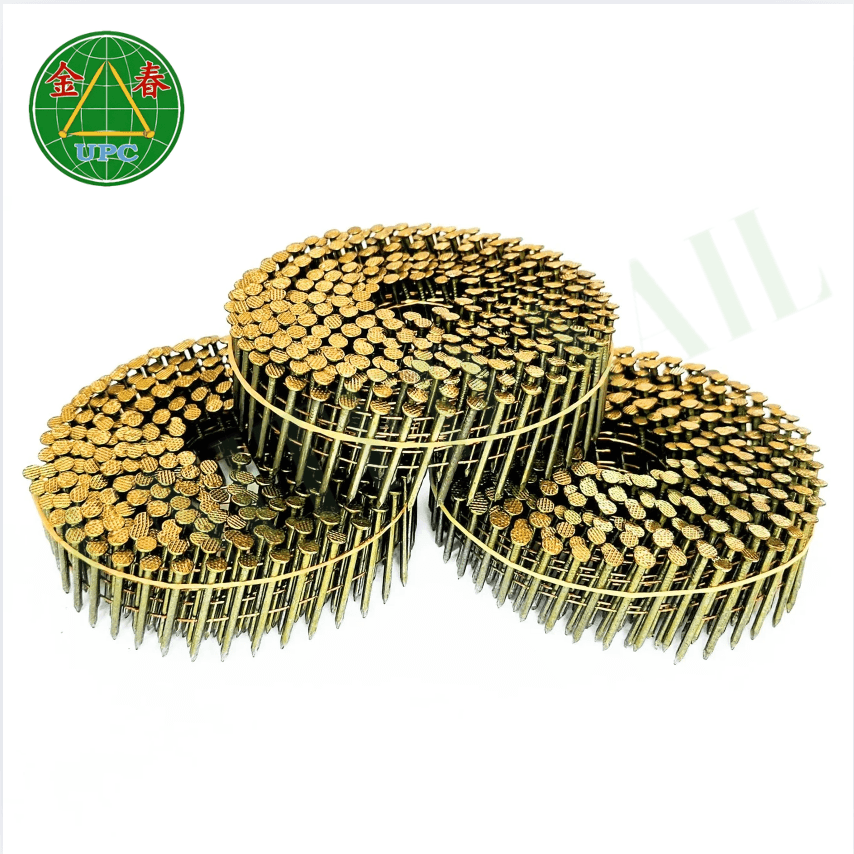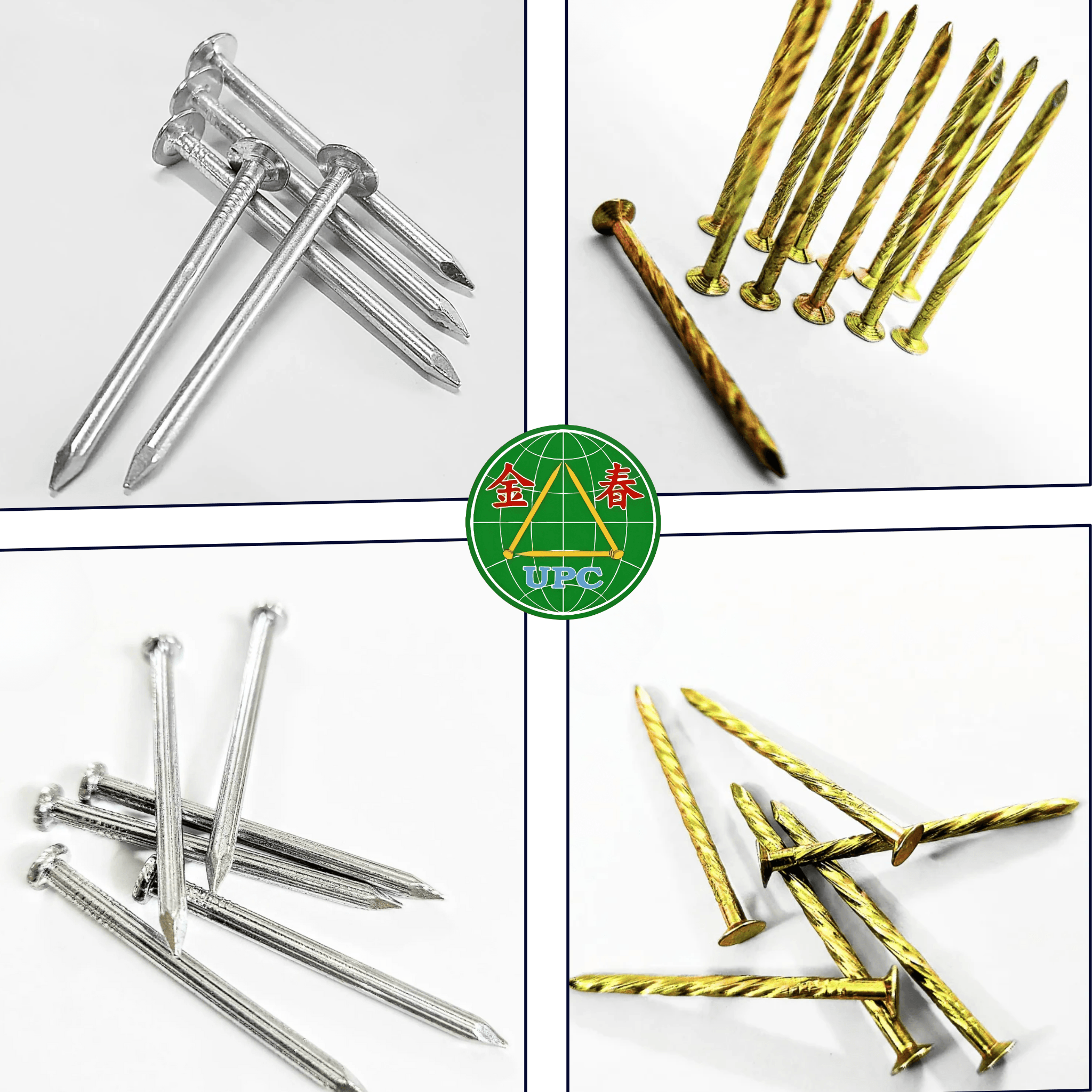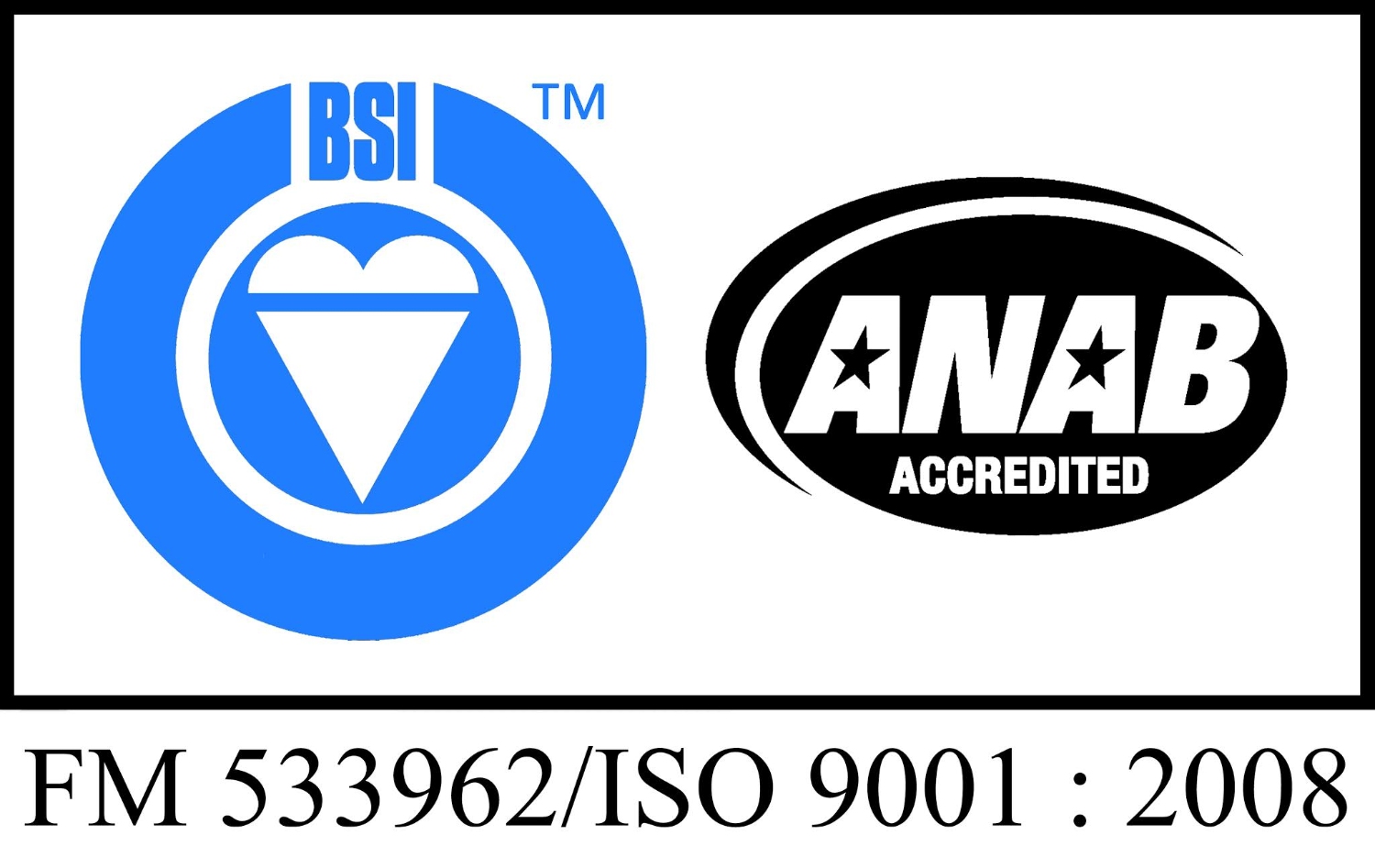In the world of construction, selecting the right materials is essential to ensure durability, efficiency, and overall project success. One crucial decision involves choosing the appropriate type of nail. Nails are fundamental to any construction job, and with so many different options available, understanding which one to use can make a significant difference.Coil nails, loose nails, and concrete nails are three common types often employed in various projects. Each type of nail offers unique benefits and serves specific purposes, so it is essential to know the differences to make an informed decision for your project.
This article will explore the key characteristics, advantages, and ideal applications of coil nails, loose nails, and concrete nails, helping you choose the right option for your needs.
MỤC LỤC BÀI VIẾT
Understanding Coil Nails
Coil nails are arranged in a compact coil formation, allowing them to be loaded into pneumatic nail guns for rapid and continuous use. This coil configuration offers one of the highest capacities for nail guns, typically holding between 200 to 300 nails per coil. As a result, coil nails are ideal for large-scale, high-speed applications like roofing, decking, and siding where a high volume of nails is needed quickly and efficiently.
The ability to store so many nails in a single coil reduces the need for frequent reloading, which saves time and increases productivity on the job site. Coil nails are often made of galvanized steel or stainless steel to provide resistance to rust and corrosion, making them suitable for outdoor applications where the nails will be exposed to the elements. They come in a variety of sizes and designs, including smooth, ring, or screw shank, to accommodate different construction tasks and provide the appropriate holding strength.

The Benefits of Using Coil Nails
Coil nails offer several significant advantages, making them a popular choice among construction professionals. One of the primary benefits is their high capacity, which allows for continuous nailing over extended periods without stopping to reload. This feature is especially beneficial for time-sensitive projects, such as roofing or siding installation, where the efficiency and speed of the work are crucial.
Another notable advantage of coil nails is their versatility. They can be used in a wide range of applications, from framing and decking to siding and fencing. Additionally, the use of pneumatic nail guns with coil nails ensures fast and accurate nail placement, resulting in consistent, high-quality work with fewer errors and less material waste.
Understanding Loose Nails
Loose nails, also known as hand-driven nails, are the traditional nails that most people are familiar with. Unlike coil nails, which are used in nail guns, loose nails are typically hammered in manually. They are widely used in various construction projects, particularly in situations where precision is more critical than speed. Loose nails come in a variety of types, including framing nails, finishing nails, and common nails, each suited for specific tasks.
One of the key differences between loose nails and other types of nails is their flexibility. Since they are not confined to a nail gun, loose nails can be used in hard-to-reach areas or in situations where a nail gun might not be practical. This makes them an excellent choice for smaller projects, repair work, or when working in tight spaces where maneuverability is needed.

The Benefits of Using Loose Nails
While loose nails may not offer the same speed and efficiency as coil nails, they have their own set of advantages. One of the main benefits is their versatility. Loose nails can be used in virtually any construction project, from framing walls to finishing woodworking projects. Because they are driven manually, there is greater control over the placement and depth of the nails, which can be crucial in projects requiring precision.
Another advantage of loose nails is that they are cost-effective and widely available. They are often more affordable than nails designed for pneumatic guns and can be found in any hardware store. This makes them an accessible option for both professionals and DIY enthusiasts alike. Additionally, loose nails are available in a variety of materials, such as steel, stainless steel, and galvanized steel, allowing for different levels of durability and corrosion resistance depending on the project requirements.
Understanding Concrete Nails
Concrete nails are a specialized type of nail designed to penetrate hard surfaces such as concrete, brick, or masonry. These nails are made from hardened steel, which gives them the strength and durability needed to drive into extremely tough surfaces without bending or breaking. Concrete nails are typically fluted or ribbed along the shank, which helps them grip securely into the material once they are driven in.
Unlike coil nails and loose nails, which are primarily used for wood and lighter construction applications, concrete nails are specifically engineered for heavy-duty tasks. They are essential when securing materials such as wood framing, furring strips, or metal brackets to concrete walls or floors.
The Benefits of Using Concrete Nails
The primary benefit of concrete nails is their ability to fasten materials securely to concrete or masonry surfaces. Without the right type of nail, it can be nearly impossible to attach wood or metal to concrete without causing damage to the materials or compromising the strength of the connection. Concrete nails solve this problem by providing a strong, durable solution that can withstand the pressure of being driven into hard surfaces.
Concrete nails also reduce the need for special tools or adhesives when working with masonry. In many cases, using concrete nails is a faster, more efficient way to secure materials compared to other fastening methods, such as using screws with anchors. This makes them a time-saving and reliable choice for construction professionals working with concrete surfaces.

Coil Nails vs. Loose Nails: Which One Is Better?
When choosing between coil nails and loose nails, the decision largely depends on the scope and nature of your project. For large-scale projects where efficiency and speed are crucial, coil nails are typically the better choice. Their ability to be used in pneumatic nail guns allows for rapid, repeated firing, which is essential for projects like roofing or siding, where thousands of nails need to be placed quickly and consistently.
On the other hand, loose nails are better suited for smaller or more detailed tasks. Their manual application allows for greater precision, making them ideal for woodworking, finishing work, or any project where you need more control over the depth and placement of each nail. Additionally, loose nails can be used in situations where a nail gun may not be practical or accessible, such as in tight spaces or on small-scale DIY projects.
Concrete Nails vs. Other Nails
While coil nails and loose nails are commonly used in wood construction, concrete nails serve a very different purpose. They are designed to fasten materials to hard surfaces like concrete, brick, or stone, which would be impossible with regular nails. If your project involves attaching wood framing, furring strips, or other materials to a concrete foundation or masonry wall, concrete nails are the only viable option.
In contrast, coil nails and loose nails are better suited for wood or light framing applications. They lack the strength and durability needed to penetrate concrete or other masonry surfaces. For heavy-duty construction projects that involve working with concrete, brick, or stone, concrete nails are the superior choice.
How to Choose the Right Nail for Your Project
When deciding between coil nails, loose nails, and concrete nails, it’s essential to consider the specific requirements of your project. For large-scale, high-efficiency tasks like roofing, siding, or framing, coil nails are an excellent choice due to their high capacity and fast application. On the other hand, for smaller, more precise projects, loose nails offer greater flexibility and control.
If your project involves fastening materials to concrete or masonry, concrete nails are the only option that will provide the strength and durability needed to ensure a secure hold. Understanding the strengths and weaknesses of each type of nail will help you choose the best tool for the job, ensuring your construction project is successful and durable.
Conclusion
In conclusion, choosing the right type of nail—whether it’s coil nails, loose nails, or concrete nails—is essential for achieving the best results in your construction project. Coil nails are perfect for high-speed, high-volume tasks, while loose nails provide flexibility and precision for smaller or more detailed work. Meanwhile, concrete nails are indispensable for projects that involve fastening materials to tough surfaces like concrete or masonry.
By considering the unique demands of your project and the strengths of each nail type, you can make an informed decision that ensures both the efficiency and durability of your work.
UNITED NAIL PRODUCTS CO., LTD
Specializing in manufacturing high quality industrial nails and tie wire
Address: 16A8, Tra Noc Industrial Zone 1, Tra Noc Ward, Binh Thuy District, Can Tho City, VietNam
Phone: (+84) 292 242165
Email: sales5@unitednail.com







